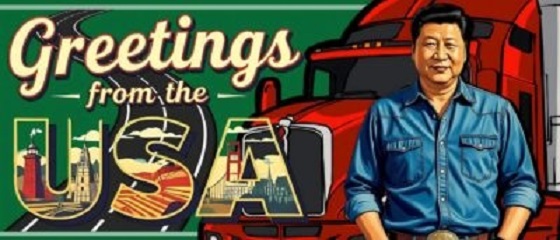International
White smoke vs. black smoke: How do we know when we have a new pope?
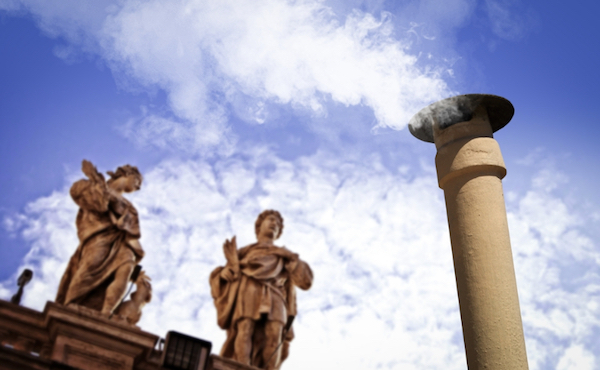
From LifeSiteNews
By Michael Haynes, Snr. Vatican Correspondent
Though no formal schedule has been released yet, it is expected that the smoke on Wednesday night could appear between 7 and 8 p.m. Rome time (11 a.m. and 12 noon MST)
How does voting work in a conclave, and when can we expect to see the black or white smoke?
LifeSite’s explainer is here to answer your questions.
Votive Mass and procession into the Sistine Chapel
Wednesday, the first day of the conclave, sees all the cardinal electors gather in St. Peter’s Basilica, where they celebrate the special votive Mass for the election of a pope. The Mass takes place at 10 a.m.
After this, the cardinal electors will next present themselves to the Pauline chapel on the first floor of the Apostolic Palace in the afternoon, at 4:30 p.m. Here they listen to an exhortative homily intended to offer spiritual wisdom for the weighty duty they face. From here they make the famous procession into the Sistine Chapel, where they shall swear their oaths for the conclave itself.
It is at this point that the televised production will stop, after the Master of Ceremonies orders all the non-electors out of the room with his famous command “Extra omnes.”
First vote Wednesday
That afternoon sees the first vote take place. This is widely understood to be an event to take stock of who has early support, but also for some cardinals to pay respect to some honored member of the conclave by voting for them, even though they are not expected to actually be elected pope.
Each cardinal must walk up to the altar in the Sistine Chapel and place his written ballot paper in a container for it to be counted.
According to Pope John Paul II’s 1996 apostolic constitution Universi Dominici gregis (UDG), the men who count and check the ballots are themselves chosen by lot. If they find discrepancies in the number of ballots in a vote, then they burn all of the papers before officially nullifying the vote.
The ballots of every vote are burned and mixed with a special chemical to produce the famous black smoke so eagerly watched for in St. Peter’s Square. UDG sections 64 through 71 contain precise details about how the votes proceed.
Though no formal schedule has been released yet, it is expected that the smoke on Wednesday night could appear between 7 and 8 p.m. Rome time.
The smoke used to be from the burning of ballot papers, but in recent times a chemical has been used to ensure the correct color is clearly visible to those waiting in the square outside. The ballots and smoke are burned in the temporary stove installed in a corner of the Sistine Chapel.
Thursday voting
The second day sees the start of voting in earnest. There are two sessions – morning and afternoon – each with two votes, meaning a total of four votes per day according to the laws governing the conclave.
However – only at the end of each of the two sessions will there be a smoke signal. That is of course only if a cardinal is not elected on one of the ballots during the day.
The ballot counters read aloud each name on the ballot papers, and tallies are created to record the votes each cardinal receives.
The morning session is anticipated to end some time around noon local time. Cardinals then return to the Casa Santa Martha for lunch, and resume voting around 4 p.m. The evening smoke signal is due around 7 – 8 p.m., unless a pope is elected in the afternoon’s first round of voting.
Pope elected
Upon a candidate receiving two-thirds of the vote, he is asked formally if he accepts the election as Supreme Pontiff.
If the man accepts, he is then asked what name he will take as pope. When he reveals this, the Master of Papal Liturgical Ceremonies swiftly writes a document detailing the new pope’s acceptance and his name.
Providing the candidate is already a bishop – which almost all the members of the College of Cardinals are – the candidate becomes the validly elected pope as soon as he pronounces his formal acceptance of the election.
The ballots are collected, mixed with the chemical for white powder, and burned so that those in St. Peter’s Square see the famous white smoke from the chimney of the Sistine Chapel.
The cardinals greet the new pope in the Chapel and make their individual acts of “homage and obedience,” before all collectively making a prayer of thanksgiving.
The newly elected pope is taken into the sacristy next to the Sistine Chapel, where he changes into one of the white cassocks already prepared for him. This small room is known as the “room of tears” due to the tears shed by the newly name pontiff as he reflects on the enormity of the task now before him.
Once he is ready, the formal announcement to the world is made, with the senior cardinal deacon stepping onto the loggia of the Vatican to pronounce the famous words: “Annuncio vobis gaudium magnum: habemus papam.”
A short time later, the newly elected pope will emerge onto the loggia and greet the crowds who have flocked to the square beneath him, offering his first blessing as pontiff.
International
Trump gets an honourable mention: Nobel winner dedicates peace prize to Trump

Quick Hit:
Venezuelan opposition leader Maria Corina Machado dedicated her Nobel Peace Prize on Friday to President Donald Trump, praising his “decisive support” for Venezuela’s fight against dictatorship.
Key Details:
- The Norwegian Nobel Committee honored Machado for “promoting democratic rights for the people of Venezuela” and her peaceful efforts to restore democracy after years of socialist rule under Nicolás Maduro.
- In her acceptance message on X, Machado said she dedicated the prize “to the suffering people of Venezuela and to President Trump,” calling the recognition a “boost” to finish the nation’s “task to conquer freedom.”
- The announcement follows Trump’s successful mediation of a peace agreement between Hamas and Israel, ending a two-year conflict and prompting new calls for Trump himself to be recognized with the prize.
This recognition of the struggle of all Venezuelans is a boost to conclude our task: to conquer Freedom.
We are on the threshold of victory and today, more than ever, we count on President Trump, the people of the United States, the peoples of Latin America, and the democratic…
— María Corina Machado (@MariaCorinaYA) October 10, 2025
Diving Deeper:
Venezuelan opposition leader Maria Corina Machado was awarded the Nobel Peace Prize on Friday for her decades-long effort to restore democracy to Venezuela. The Norwegian Nobel Committee commended her for “bringing her country’s opposition together,” “resisting the militarization of Venezuelan society,” and maintaining her “steadfast support for a peaceful transition to democracy.”
Shortly after the announcement, Machado posted a message dedicating the award “to the suffering people of Venezuela and to President Trump for his decisive support of our cause.” She continued, “We are on the threshold of victory, and today, more than ever, we count on President Trump, the people of the United States, the peoples of Latin America, and the democratic nations of the world as our principal allies to achieve freedom and democracy.”
The recognition came just days after a Trump-negotiated peace agreement between Hamas and Israel was signed, potentially ending two years of war in the region. The timing has fueled renewed discussion of Trump’s growing international legacy — particularly as Machado becomes one of many global leaders to credit him for advancing peace abroad.
Trump has long expressed interest in receiving a Nobel Peace Prize, citing his administration’s historic peace deals and conflict resolutions during both his first and current terms. In January, Trump voiced strong support for Machado and Venezuela’s pro-democracy movement, praising her for “peacefully expressing the voices and the will of the Venezuelan people.”
Machado has faced years of political persecution by Venezuela’s socialist regime. Her candidacy in last year’s presidential election was blocked by Maduro’s government over alleged financial irregularities, forcing her to endorse another opposition candidate. Though the opposition claimed victory, Maduro refused to relinquish power.
In awarding her the Nobel Peace Prize, the committee noted that Machado “meets all three criteria stated in Alfred Nobel’s will” — disarmament, the brotherhood of nations, and the promotion of peace. Her acknowledgment of Trump, however, underscored the American president’s continued influence in global democratic movements.
Machado concluded her statement with a call to perseverance: “This recognition of the struggle of all Venezuelans is a boost to conclude our task — to conquer freedom.”
Business
Trump Warns Beijing Of ‘Countermeasures’ As China Tightens Grip On Critical Resources
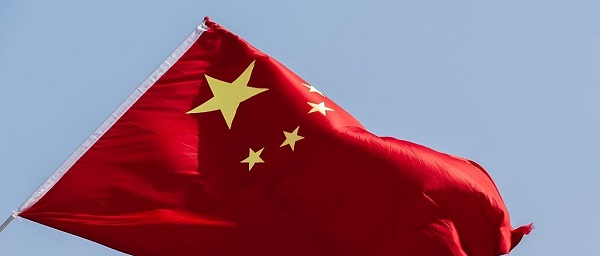

From the Daily Caller News Foundation
Despite their strategic significance, the U.S. imports 80% of the rare earths it consumes, primarily from China, which dominates global production and controls roughly 92% of the world’s refining capacity.
President Donald Trump on Friday threatened China with a massive tariff hike and hinted his upcoming summit with Chinese President Xi Jinping could be canceled as a result of Beijing’s latest escalation in trade hostilities.
China ramped up its economic pressure campaign this week, first by imposing new export controls Thursday on rare earth minerals critical to the production of vehicles, weapons systems, and other advanced technologies. On Friday, Beijing escalated further, announcing new port fees on American ships and launching an antitrust investigation into U.S. tech giant Qualcomm.
In response to what he described as “great trade hostility,” Trump said there was “no reason” to meet with Xi in South Korea later this month.
Dear Readers:
As a nonprofit, we are dependent on the generosity of our readers.
Please consider making a small donation of any amount here.
Thank you!
“Dependent on what China says about the hostile ‘order’ that they have just put out, I will be forced, as President of the United States of America, to financially counter their move. For every Element that they have been able to monopolize, we have two,” the president posted on Truth Social.
Trump announced later on Friday that the U.S. would impose a 100% tariff on China starting Nov. 1, in addition to existing levies, and implement export controls on “any and all critical software.” He added that the tariffs could go into effect sooner, “depending on any further actions or changes taken by China.”
Despite their strategic significance, the U.S. imports 80% of the rare earths it consumes, primarily from China, which dominates global production and controls roughly 92% of the world’s refining capacity.
Under the new rules, foreign suppliers must obtain Beijing’s approval to export any product made with Chinese rare-earth processing technology or containing rare-earth materials that comprise as little as 0.1% of the item’s value. The restrictions also extend to the export of technology used in rare-earth mining, smelting, and magnet manufacturing, and add five more rare-earth elements to China’s existing control list.
Trump warned that Beijing’s move could “clog” global markets and “make life difficult for virtually every country in the world.”
“I have always felt that they’ve been lying in wait, and now, as usual, I have been proven right! There is no way that China should be allowed to hold the World “captive,” but that seems to have been their plan for quite some time,” the president wrote.
“But the U.S. has Monopoly positions also, much stronger and more far reaching than China’s. I have just not chosen to use them, there was never a reason for me to do so — UNTIL NOW!” Trump said.
The Chinese Transport Ministry also said it will begin collecting port fees on vessels owned by U.S. companies or individuals — and even those built in America — starting Oct. 14. The rollout overlaps with Washington’s plan to impose new charges on large Chinese vessels docking at U.S. ports the same day.
The president also noted that Beijing’s timing was “especially inappropriate,” noting that it coincides with the peace deal he helped broker between Israel and Hamas to bring the two-year conflict to an end.
-

 Red Deer2 days ago
Red Deer2 days agoThe City of Red Deer’s Financial Troubles: Here Are The Candidates I Am Voting For And Why.
-

 Business2 days ago
Business2 days agoCall for Federal Inquiry as Pressure Mounts for Release of Buried Report on Buddhist Land Transactions in PEI
-
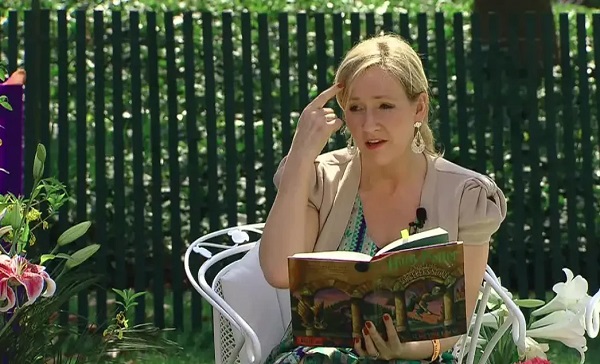
 Aristotle Foundation1 day ago
Aristotle Foundation1 day agoEfforts to halt Harry Potter event expose the absurdity of trans activism
-

 Bruce Dowbiggin1 day ago
Bruce Dowbiggin1 day agoCanada’s Humility Gene: Connor Skates But Truckers Get Buried
-

 Energy1 day ago
Energy1 day ago“It is intellectually dishonest not to acknowledge the … erosion of trust among global customers in Canada’s ability to deliver another oil pipeline.”
-
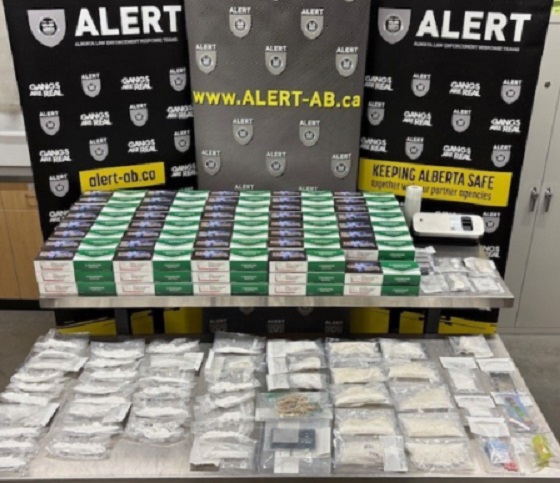
 Alberta Law Enforcement Response Team2 days ago
Alberta Law Enforcement Response Team2 days agoMethamphetamine and cocaine seized in Red Deer
-
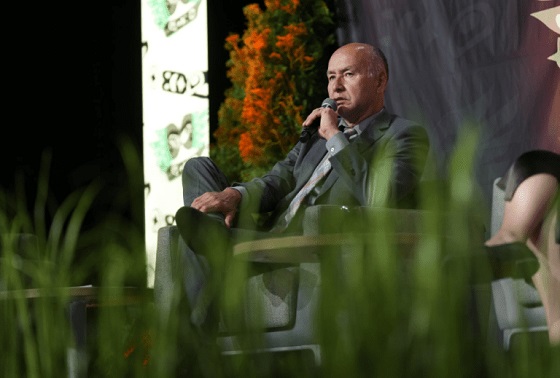
 Energy1 day ago
Energy1 day agoIn the halls of Parliament, Ellis Ross may be the most high-profile advocate of Indigenous-led development in Canada.
-
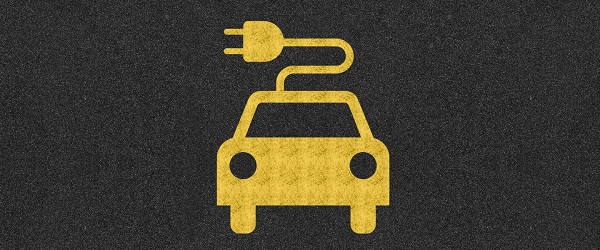
 Automotive2 days ago
Automotive2 days agoGovernments continue to support irrational ‘electric vehicle’ policies



